
Well, it's not quite February, but some of our customers are getting ready for Valentine's Day a bit early. Check out these two young men figuring out How to Talk to Girls. Figure that out guys, and you've got it made!


 So stop in and consult the Love Peddler. She's waiting to hook you up.
So stop in and consult the Love Peddler. She's waiting to hook you up. While this hardly mitigates the dustjacket design, seeing The Lincoln Anthology: Great Writers on His Life and Legacy from 1860 to Now, in a boxed set from Library of America, goes a long way to making me happier about trying to sell the book.
While this hardly mitigates the dustjacket design, seeing The Lincoln Anthology: Great Writers on His Life and Legacy from 1860 to Now, in a boxed set from Library of America, goes a long way to making me happier about trying to sell the book. I've been trying to get the two volumes of Speeches and Writings back into the store in time for the Bicentennial, but I hadn't had any luck. Now I understand why. Redesigned with red and blue covers, and boxed with the anthology, they make a handsome, if a little on-the-nose design for this bran new presentation.
I've been trying to get the two volumes of Speeches and Writings back into the store in time for the Bicentennial, but I hadn't had any luck. Now I understand why. Redesigned with red and blue covers, and boxed with the anthology, they make a handsome, if a little on-the-nose design for this bran new presentation.  Eric Foner is exactly the kind of history professor from whom I wish I could take a class; erudite, serious and excited by his subject. Reading his books, particularly A Short History of Reconstruction and Forever Free: The Story of Emancipation and Reconstruction, I've become convinced that if there is anyone who can teach me what it meant to be alive in America then, and what the lives of Americans then might and ought to mean to us now, it is Eric Foner.
Eric Foner is exactly the kind of history professor from whom I wish I could take a class; erudite, serious and excited by his subject. Reading his books, particularly A Short History of Reconstruction and Forever Free: The Story of Emancipation and Reconstruction, I've become convinced that if there is anyone who can teach me what it meant to be alive in America then, and what the lives of Americans then might and ought to mean to us now, it is Eric Foner. 



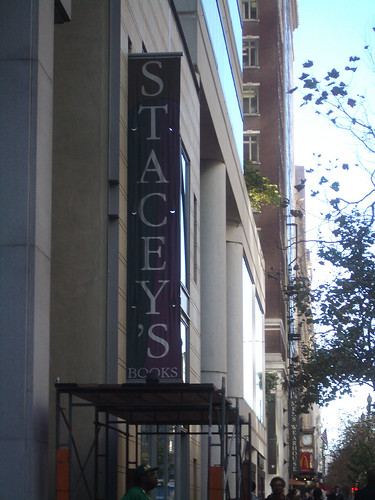 Since my first posting on the sad news that Stacey's Bookstore in San Francisco had announced it will be closing in March after 85 years in San Francisco, I've been following the story online and through friends in San Francisco. On Facebook I was encouraged to discover a "grassroots" effort organizing to "Save Stacey's Bookstore." I've also heard from many people, online and off, expressing shock and dismay at the news. On behalf of Independent Booksellers everywhere, let me extend my thanks to all the good people out there who care about where they buy their books and from whom. What we do, and the opportunity to do it, depends on just such thoughtful, community-minded patrons. We have always been, and continue to be grateful for your support, and your business. And if I may still presume to speak for the booksellers at Stacey's, I'm sure they are just as grateful for the many new and familiar voices joining the chorus now rising to try to save that venerable bookstore.
Since my first posting on the sad news that Stacey's Bookstore in San Francisco had announced it will be closing in March after 85 years in San Francisco, I've been following the story online and through friends in San Francisco. On Facebook I was encouraged to discover a "grassroots" effort organizing to "Save Stacey's Bookstore." I've also heard from many people, online and off, expressing shock and dismay at the news. On behalf of Independent Booksellers everywhere, let me extend my thanks to all the good people out there who care about where they buy their books and from whom. What we do, and the opportunity to do it, depends on just such thoughtful, community-minded patrons. We have always been, and continue to be grateful for your support, and your business. And if I may still presume to speak for the booksellers at Stacey's, I'm sure they are just as grateful for the many new and familiar voices joining the chorus now rising to try to save that venerable bookstore. This is Sydney. She genuinely enjoyed sniffing the store thoroughly. She also seemed to enjoy her cookie, once it had been thoroughly sniffed. She was about as friendly as a dog can possibly be without actually bursting.
This is Sydney. She genuinely enjoyed sniffing the store thoroughly. She also seemed to enjoy her cookie, once it had been thoroughly sniffed. She was about as friendly as a dog can possibly be without actually bursting. This morning in Seattle the sky is paper white. Coming in to the bookstore, Brooklyn Ave., as I cross it, disappears at either end in a fog as dense as pipe-smoke. At this hour of the morning -- early for a Saturday -- University Way is empty but for baggy-kneed runners and a very small lady walking a very small dog. The occasional crow with a bagel too large to be lifted from the gutter semaphores threats to rival diners real or imagined. The air burns just a little with each breath taken.
This morning in Seattle the sky is paper white. Coming in to the bookstore, Brooklyn Ave., as I cross it, disappears at either end in a fog as dense as pipe-smoke. At this hour of the morning -- early for a Saturday -- University Way is empty but for baggy-kneed runners and a very small lady walking a very small dog. The occasional crow with a bagel too large to be lifted from the gutter semaphores threats to rival diners real or imagined. The air burns just a little with each breath taken. A new question from the Seattle Gay & Lesbian Book Club for our author Michael Downing, about his novel Breakfast with Scot. Nick & Co. wanted to know if Scot -- the little boy inherited by the central characters Ed and Sam -- was based "on a real boy." Herewith, Mr. Downing's response:
A new question from the Seattle Gay & Lesbian Book Club for our author Michael Downing, about his novel Breakfast with Scot. Nick & Co. wanted to know if Scot -- the little boy inherited by the central characters Ed and Sam -- was based "on a real boy." Herewith, Mr. Downing's response:  slacks and dragging a boa. I had no idea who he was or what he wanted with me, but he'd just stand there is his slouchy, hands-on-the-hips way and stare, occasionally widening his eyes to convey his astonishment at my failure to introduce myself and get him a cold beverage.Maybe he was an amalgamation of boys whose flamboyant bravery I'd admired. Maybe I hauled him out of my fear that he was the boy people saw hiding inside of me. Whoever he was, he made it clear he wouldn't go away, no matter how often I raised my eyebrows or sighed audibly to let him know I was too busy to entertain visitors.
slacks and dragging a boa. I had no idea who he was or what he wanted with me, but he'd just stand there is his slouchy, hands-on-the-hips way and stare, occasionally widening his eyes to convey his astonishment at my failure to introduce myself and get him a cold beverage.Maybe he was an amalgamation of boys whose flamboyant bravery I'd admired. Maybe I hauled him out of my fear that he was the boy people saw hiding inside of me. Whoever he was, he made it clear he wouldn't go away, no matter how often I raised my eyebrows or sighed audibly to let him know I was too busy to entertain visitors. Further conversation with Michael Downing, author of Breakfast with Scot, the first book being discussed in the Seattle Gay & Lesbian Book Club. To read Part 1, click here.
Further conversation with Michael Downing, author of Breakfast with Scot, the first book being discussed in the Seattle Gay & Lesbian Book Club. To read Part 1, click here.
 This is River. He's only three months old, but look how good he is about sitting for a photograph without even getting a treat.
This is River. He's only three months old, but look how good he is about sitting for a photograph without even getting a treat.
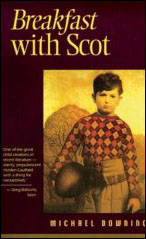
 Beloved Helene Hanff, of 84 Charing Cross Road fame, when confronted by a book of excerpts from the sermons of John Donne, pleaded with her beloved bookstore to find her a complete edition of same. She knew her chances were slim. Having detailed her struggles to cobble together the full text on her own, she closed her letter with the following:
Beloved Helene Hanff, of 84 Charing Cross Road fame, when confronted by a book of excerpts from the sermons of John Donne, pleaded with her beloved bookstore to find her a complete edition of same. She knew her chances were slim. Having detailed her struggles to cobble together the full text on her own, she closed her letter with the following:
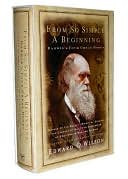

 Thanks to our own Stesha Brandon and the good folks in our Events Department, we will be hosting no less a personage than Ronald C. White, Jr. on January 27th, at 7PM, right here in the store. This is exciting news. A. Lincoln: A Biography, Professor White's new book, was just released today and has already received glowing endorsements from the likes of James M. McPherson, Daniel Walker Howe, Harold Holzer and Jon Meacham, author of the bestselling American Lion: Andrew Jackson in the White House!
Thanks to our own Stesha Brandon and the good folks in our Events Department, we will be hosting no less a personage than Ronald C. White, Jr. on January 27th, at 7PM, right here in the store. This is exciting news. A. Lincoln: A Biography, Professor White's new book, was just released today and has already received glowing endorsements from the likes of James M. McPherson, Daniel Walker Howe, Harold Holzer and Jon Meacham, author of the bestselling American Lion: Andrew Jackson in the White House! I've only just begun White's book, but I am excited already at the prospect of hearing so eminent a scholar speak on the 16th President. His earlier work includes Lincoln's Greatest Speech: The Second Inaugural and The Eloquent President: A Portrait of Lincoln Through His Words.
I've only just begun White's book, but I am excited already at the prospect of hearing so eminent a scholar speak on the 16th President. His earlier work includes Lincoln's Greatest Speech: The Second Inaugural and The Eloquent President: A Portrait of Lincoln Through His Words.
 It can be quite discouraging, reading and recommending GLBT fiction. The gay audience for fiction seems to be aging, and the younger generation seems not to find short stories and novels as vital to their understanding of themselves and our common gay culture as we did and do. Perhaps as a symptom of the wider culture's abandonment of print in favor of electronic media, or perhaps as the direct result of publishing's growing reluctance to support gay literary fiction as the primary focus of gay writing as an art form, but for whatever reason, gay fiction seems to have devolved largely into an increasingly genre-driven ghetto of YA, fantasy and porn stories.
It can be quite discouraging, reading and recommending GLBT fiction. The gay audience for fiction seems to be aging, and the younger generation seems not to find short stories and novels as vital to their understanding of themselves and our common gay culture as we did and do. Perhaps as a symptom of the wider culture's abandonment of print in favor of electronic media, or perhaps as the direct result of publishing's growing reluctance to support gay literary fiction as the primary focus of gay writing as an art form, but for whatever reason, gay fiction seems to have devolved largely into an increasingly genre-driven ghetto of YA, fantasy and porn stories.

 Taking the briefest of breaks from my Lincoln reading, before taking on the newest full biography, A. Lincoln, by Ronald C. White Jr. (to be released January 13th,) I turned to Walt Whitman tonight, and his experience of the War, it's devastation's and losses, personal and public. A new book, Now the Drum of War: Walt Whitman and His Brothers in the Civil War, by Robert Roper, tells not only of the great poet, but of his family, and in particular two younger brothers who fought in the war. It is a valuable story, and well told by Roper.
Taking the briefest of breaks from my Lincoln reading, before taking on the newest full biography, A. Lincoln, by Ronald C. White Jr. (to be released January 13th,) I turned to Walt Whitman tonight, and his experience of the War, it's devastation's and losses, personal and public. A new book, Now the Drum of War: Walt Whitman and His Brothers in the Civil War, by Robert Roper, tells not only of the great poet, but of his family, and in particular two younger brothers who fought in the war. It is a valuable story, and well told by Roper.
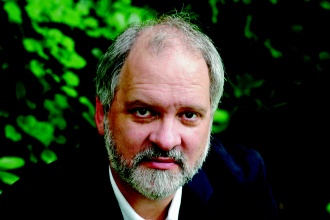 Back in 2000, Gerald J. Prokopowicz published All for the Regiment: The Army of the Ohio 1861 - 1862. Now that is exactly the kind of Civil War title I actively avoid; military history, narrowly focused, the kind of title marketed to Civil War "buffs." Well, I'm no kind of war buff. Having read Shelby Foote's 3 volumes, I really have no interest in reading other titles on the subject. And yet...
Back in 2000, Gerald J. Prokopowicz published All for the Regiment: The Army of the Ohio 1861 - 1862. Now that is exactly the kind of Civil War title I actively avoid; military history, narrowly focused, the kind of title marketed to Civil War "buffs." Well, I'm no kind of war buff. Having read Shelby Foote's 3 volumes, I really have no interest in reading other titles on the subject. And yet...
 Just a reminder: we carry a variety of Used Books, including, for the moment, pretty interesting collection of Lincoln & Civil War titles. These are usually just single copies, so once a title sells we might not see it again for a very long time (we've sold the complete Sandburg about four times, in various conditions, for example -- though naturally we don't have any sets now that the Bicentennial approaches.)
Just a reminder: we carry a variety of Used Books, including, for the moment, pretty interesting collection of Lincoln & Civil War titles. These are usually just single copies, so once a title sells we might not see it again for a very long time (we've sold the complete Sandburg about four times, in various conditions, for example -- though naturally we don't have any sets now that the Bicentennial approaches.)
 I love Brian Lamb. How can you not? He's like that high school coach who ends up teaching History because the regular teacher is on maternity leave; he's prepared, got lots of notes, fires off questions like he's drilling plays, and he always seems uncomfortable and enthusiastic in equal parts. If you don't watch "Booknotes," hosted by C-SPAN CEO Brian Lamb, you are soooo missing out. It is a great program, particularly for history buffs, among whom Mr. Lamb can clearly be numbered. He's not quite a TV personality, despite years in front of the camera, and that only adds to his charm.
I love Brian Lamb. How can you not? He's like that high school coach who ends up teaching History because the regular teacher is on maternity leave; he's prepared, got lots of notes, fires off questions like he's drilling plays, and he always seems uncomfortable and enthusiastic in equal parts. If you don't watch "Booknotes," hosted by C-SPAN CEO Brian Lamb, you are soooo missing out. It is a great program, particularly for history buffs, among whom Mr. Lamb can clearly be numbered. He's not quite a TV personality, despite years in front of the camera, and that only adds to his charm..jpg) Periodically, C-SPAN gathers some of Lamb's "interviews," or friendly interrogations might be more apt, into a kind of a book. Now, they've gathered excerpts from C-SPAN many wonderful Lincoln broadcasts, Booknotes interviews and the like into a new book, Abraham Lincoln: Great American Historians on Our Sixteenth President. It isn't really a book, at least not a book of essays, though that's what the clever editors are calling these interview responses and the like. Think of it more as a souvenir of Lincoln chats with some of the best -- and one of the worst -- folks in the field. Every entry is basically a bite-sized summery of remarks on a particular theme, say Lincoln on religion, by a particular historian.
Periodically, C-SPAN gathers some of Lamb's "interviews," or friendly interrogations might be more apt, into a kind of a book. Now, they've gathered excerpts from C-SPAN many wonderful Lincoln broadcasts, Booknotes interviews and the like into a new book, Abraham Lincoln: Great American Historians on Our Sixteenth President. It isn't really a book, at least not a book of essays, though that's what the clever editors are calling these interview responses and the like. Think of it more as a souvenir of Lincoln chats with some of the best -- and one of the worst -- folks in the field. Every entry is basically a bite-sized summery of remarks on a particular theme, say Lincoln on religion, by a particular historian. War: Ultimate Sticker Book, $2.98.
War: Ultimate Sticker Book, $2.98.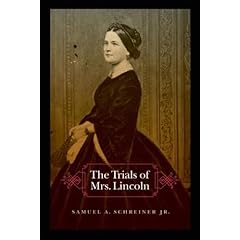
 War, by John C. Waugh, $7.98.
War, by John C. Waugh, $7.98.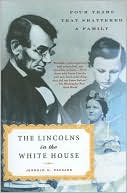

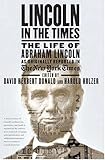 Lincoln in The Times: The Life of Abraham Lincoln as Originally Reported in The New York Times, edited by David Herbert Donald and Harold Holzer -- two names that should be familiar to Lincoln readers (and to readers of this blog.) $8.98 in hardcover.
Lincoln in The Times: The Life of Abraham Lincoln as Originally Reported in The New York Times, edited by David Herbert Donald and Harold Holzer -- two names that should be familiar to Lincoln readers (and to readers of this blog.) $8.98 in hardcover. Father Abraham: Lincoln's Relentless Struggle to End Slavery, by Richard Striner. $9.98 in hardcover.
Father Abraham: Lincoln's Relentless Struggle to End Slavery, by Richard Striner. $9.98 in hardcover.